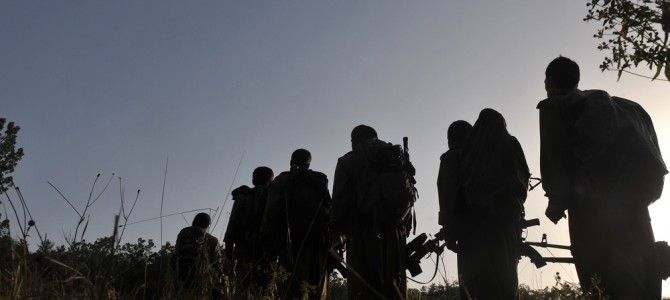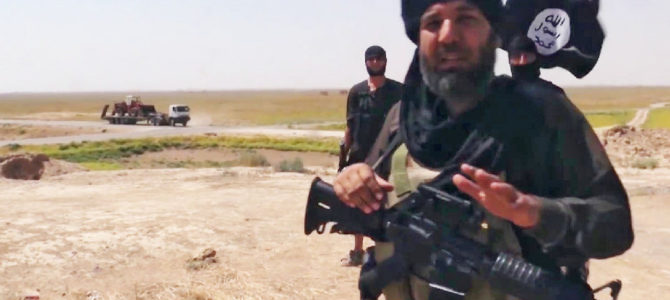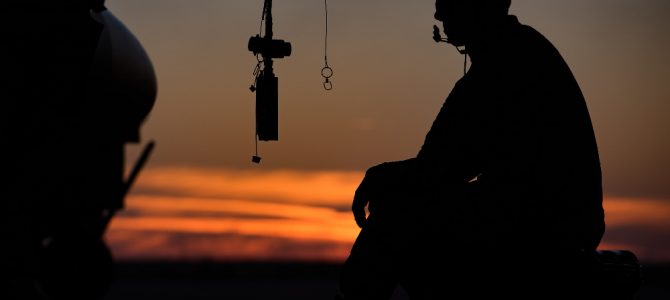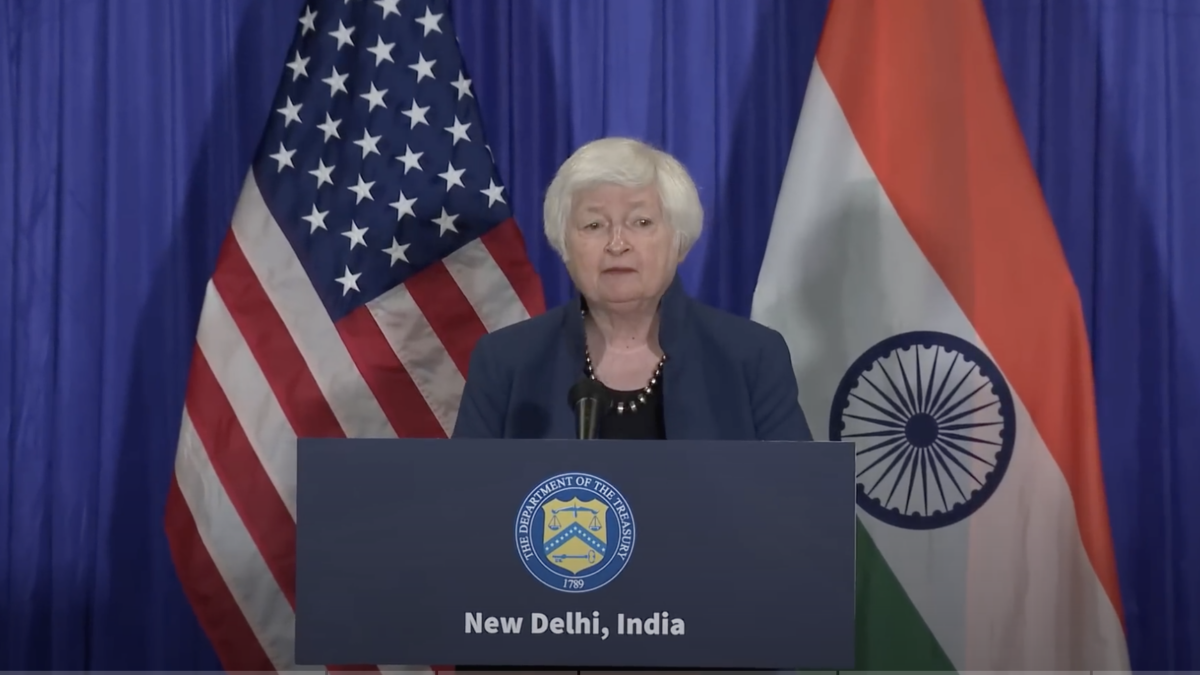
Over the past three years, the Islamic State has risen to be the most prominent international terrorist organization in the world. After initially dismissing them as Al Qaeda’s “jayvee team,” in September 2014 President Obama promised to degrade and destroy ISIS. Since then, he and Secretary of State John Kerry have repeatedly insisted that Islamic State is “on the run,” despite ongoing attacks in the West and elsewhere.
Now, with only two weeks left in Obama’s presidency, the reality is that ISIS is far from being defeated. Between the battle of Mosul and recent attacks in Berlin, Istanbul, and Baghdad, it’s evident that ISIS is alive and well, with a global reach.
When Obama leaves office later this month, the ongoing threat of ISIS in the Middle East and elsewhere will stand as an indictment of his administration’s failed foreign policy approach of “leading from behind,” placing domestic political concerns over American interests abroad.
What’s Going On in Mosul
The U.S.-led coalition in Iraq is continuing its efforts to wrest Mosul from ISIS control. When the offensive began in October, Iraqi Prime Minister Haider al-Abadi predicted ISIS would be routed from the city by Christmas. Initially, the coalition forces, including Kurdish units and Shiite militias, met with quick success in the outlying suburbs of the country’s second largest city. But once they moved into the city itself, progress slowed nearly to a halt.
Mosul is full of narrow alleyways that are well known to ISIS fighters who have had months to prepare for this type of battle. Snipers, suicide bombers, and improvised explosive devices are taking their toll on coalition fighters. Some units have reportedly lost up to a third of their troops.
The coalition began a renewed effort last week, and while they have reportedly regained control of 60 percent of eastern Mosul, it’s unclear what the coalition will face in the more heavily populated western portion of the city. Prime Minister al-Abadi is now forecasting that it will take three more months before the fighting is over. But this prediction seems doubtful. Some analysts are looking toward the summer as a likely timeline for victory. And a lot can happen between now and then to turn the tide.
A Victory in Mosul Won’t End ISIS
Even if Mosul is retaken by summer, that won’t be the end of ISIS. The U.S. commander of the coalition against ISIS predicts that it could take up to two years to deprive the Islamic State fully of its territory in Iraq and Syria. America currently has nearly 5,000 troops deployed to Iraq. How many more soldiers will we have to commit to eradicate ISIS from the Middle East?
In the wake of the renewed efforts in the Mosul offensive, ISIS has claimed responsibility for three bombings that hit Baghdad in the last few days. One of these attacks was aimed at Sadr City, a majority Shiite neighborhood. 28 people were killed in the attacks, including seven policemen.
Islamic State fighters have been launching attacks elsewhere in Iraq as well. They temporarily cut off the road that connects Mosul to Baghdad, killing 16 coalition fighters in the process. And on Sunday, five suicide bombers attacked the Shiite holy city of Najaf, killing seven.
ISIS Is Still Focused on Attacking the West
Outside of Iraq and Syria, ISIS is still proving to be a deadly threat. On New Year’s Eve, a lone gunman opened fire at revelers at an upscale Istanbul nightclub. Dressed in a Santa Claus costume, the man killed 39 people before disappearing. Turkish authorities are still searching for him. ISIS claimed responsibility for the attack, calling it retribution for Turkey’s assault against ISIS in Syria.
It’s not clear, however, whether the attack was motivated by Turkey’s involvement in fighting ISIS in Syria or whether this was part of a larger push on the part of ISIS to renew violence abroad. At the beginning of December, ISIS’ new spokesman called for a surge in lone wolf attacks in Europe, the U.S., Russia, and Iran. He told adherents of the group to attack people “in their markets, roads and clubs.” In the days before December 31, an ISIS affiliated group called for sympathizers to turn New Year’s Eve into a “bloody horror movie.”
Sadly, these calls for violence were made a reality in Istanbul and, prior to that, in Berlin, where a Tunisian man drove a truck into a large crowd at a Christmas market, killing 12.
Winning the Ideological Battle Won’t Be Easy
Some of this behavior—the suicide attacks in Baghdad and the renewed call for violence—may be evidence that ISIS is lashing out as it struggles to retain territory. But while the Istanbul New Year’s Eve attack may have been payback for Turkey’s offensive against the Islamist group, their past attacks have had other motivations—namely, killing infidels, Christian and Muslim alike. These recent attacks are, therefore, not just symptoms of a breakdown of ISIS; they are part of its overall strategy.
Experts are predicting that as ISIS loses territory it will shift back toward its guerrilla warfare roots. But recall that ISIS operatives were launching similar attacks at the height of their territorial control. It has always been a part of their modus operandi.
If ISIS eventually loses its territory, it will change the dynamics of the organization but it won’t make the group any less dangerous. No one considered al-Qaeda to be “jayvee” because they held no territory. Ridding ISIS of their landed caliphate is one step toward defeating them—a step yet to be completed—but it’s hardly the only one. There is an ideological battle to be won, and it won’t be easy.
Obama Helped Cultivate—Not Kill—The Islamic State
As its days dwindle, the Obama administration is far from completing its avowed objective to degrade and destroy ISIS. This is, in part, because it has lacked the moral fortitude to deal with ISIS effectively. Obama, with the collusion of the mainstream media, has refused to call out the dangers of radical Islam both abroad and at home. In fact, he won’t even acknowledge that religion has anything to do with ISIS and its allure to young men and women around the world.
What’s more, Obama’s feckless foreign policy has been marked by hesitancy and a resistance to using force. His myopic obsession with getting troops out of Iraq is what opened the way for ISIS’s rapid conquests in Iraq in the first place. And his dogged insistence to keep boots off the ground has slowed the coalition’s progress in defeating them.
ISIS may not be as strong as ever. But this varsity team hardly looks like it’s drawing its dying breath. ISIS fighters still have control of Mosul, the second largest city in Iraq, and are proving difficult to defeat there. And, perhaps more importantly, they still have the power to inspire.
With little over two weeks left in his presidency, Obama will leave office having overseen the rise of ISIS. He will not be able to say the same about supervising its demise.









